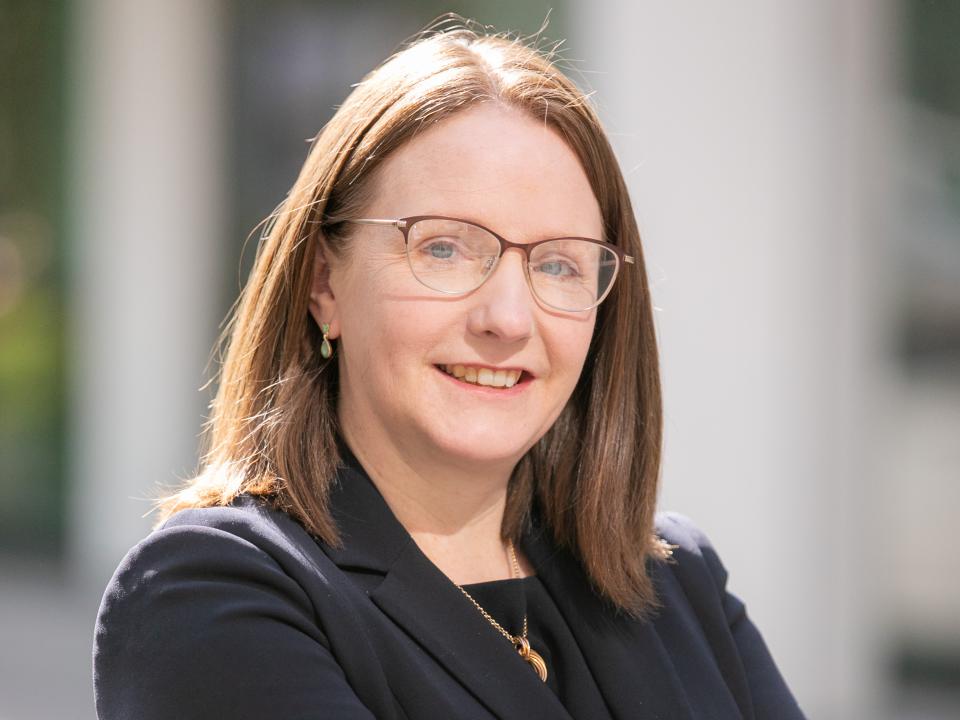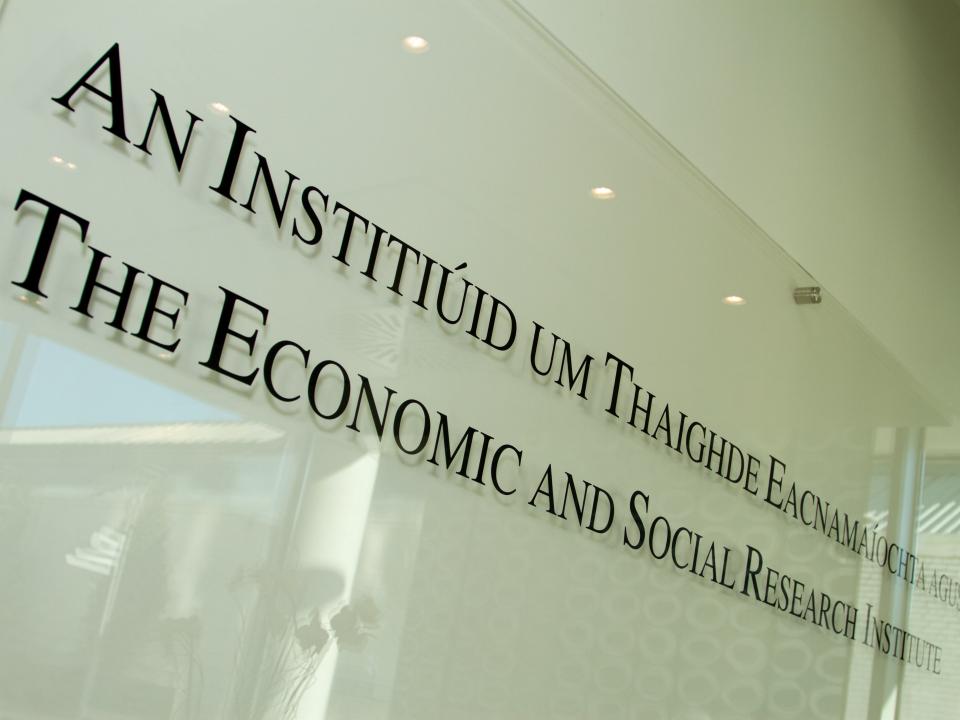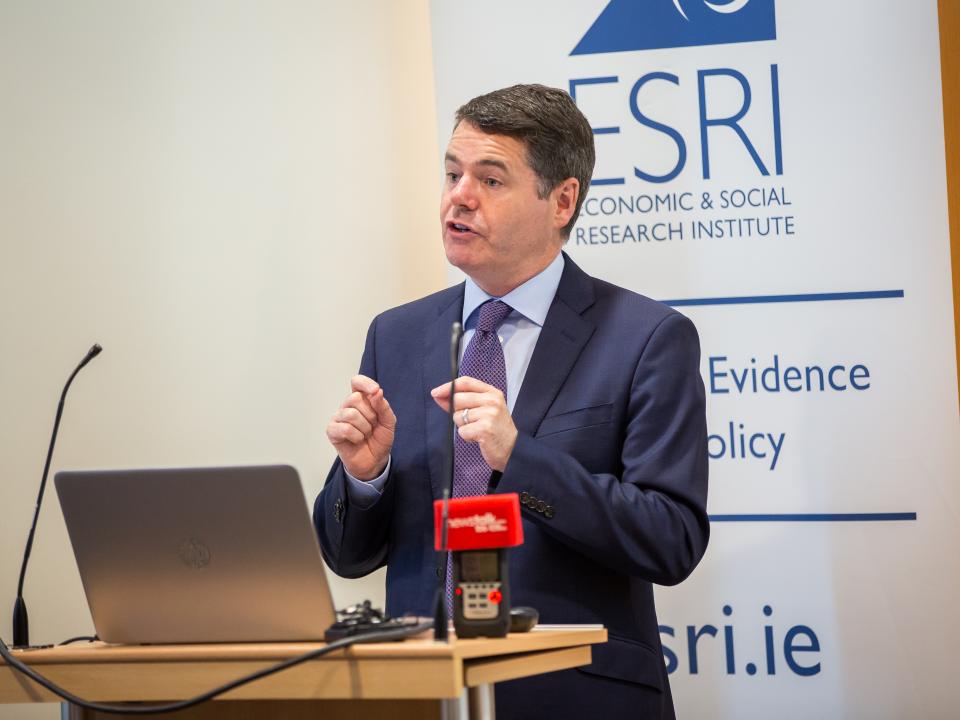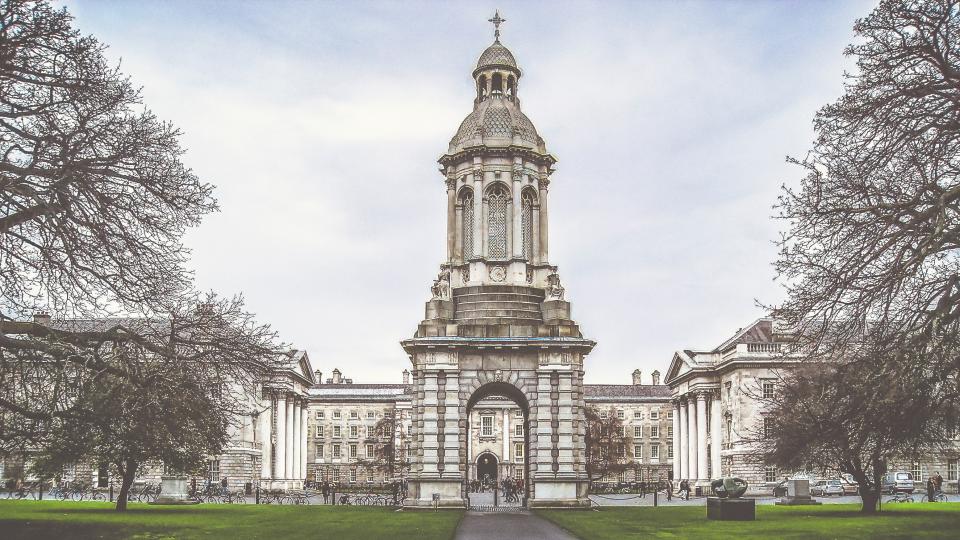About the ESRI
Message from the Director

Professor Martina Lawless
The ESRI produces independent, high-quality research with the objective of informing policies that support a healthy economy and promote social progress. Ireland is currently facing many challenges on both fronts. A growing and ageing population is testing our provision of infrastructure and public services. Climate change obligations require significant investment and behavioural change. The problem of housing supply has persisted for some time.
Progress on these issues is not inevitable. It requires policies grounded in evidence and therefore likely to act as effective solutions to complex policy challenges. At the Institute, we believe that knowledge and facts are the most powerful problem-solving tools for policymakers. Therefore, our primary objective is to provide policymakers with robust, objective evidence that can translate into effective policy solutions. This, together with our independence and dedication to the highest academic standards, means that we are never distracted from our mission: to provide evidence to inform policymaking and public debate.
Read the full Message from the Director.
Independence

The Institute was founded in 1960 by a group of senior civil servants, led by Dr T.K. Whitaker, who identified the need for independent and in-depth research to support the policymaking process in Ireland. Since then, the Institute has remained committed to independent research and its work is free of any expressed ideology or political position. The Institute publishes all research reaching the appropriate academic standard, irrespective of its findings or who funds the research.
Read about Institute’s commitment to independence.
Read about the establishment of the Institute.
Research Quality

The quality of the Institute’s research output is guaranteed by a rigorous peer review process, during which research outputs are examined and critiqued by both internal and external referees. Research is published only when it meets the required standards and practices. Research quality has also been assessed as part of three peer reviews of the Institute, in 2010, 2016 and 2022. Read the Peer Review reports.
Research priorities are determined during the strategic planning process, which takes place every 5 years. Our Research Strategy 2024-2028 sets out how the ESRI will continue to fulfil its mission over the five year period and how we will strive to do so more effectively.
Expertise

The ESRI brings together leading experts from different disciplines who work together to break new ground across a number of research initiatives. Their expertise is widely recognised in public life. Researchers are represented on the boards and advisory committees of several national and international organisations, including the Central Statistics Office and the International Labor Organization.
Researchers have addressed a number of Oireachtas Committees in recent years, including the Committee on Budgetary Oversight, the Committee on Health and the Committee on Climate Action. Read about our people.
Dissemination

ESRI research findings are disseminated widely in books, journals and peer-reviewed reports. Reports published by the ESRI are available to download, free of charge, from its website. Additionally, ESRI staff members communicate research findings at regular conferences and seminars, which provide a platform for representatives from government, civil society and academia to discuss key findings from recently published studies and ongoing work.
The ESRI publishes a Review of Research on an annual basis to provide an overview of published research and ongoing research initiatives. Research findings are also communicated through the Institute’s LinkedIn account.
Governance

The ESRI is a company limited by guarantee, answerable to its members and governed by a Council, comprising up to 14 members who represent a cross-section of ESRI members: academia, civil service, state agencies, businesses and civil society.
Find out more about ESRI Governance.
Funding and Membership

The Institute receives an annual grant-in-aid from the Department of Public Expenditure, Infrastructure, Public Service Reform and Digitalisation.
The grant has accounted for approximately 25 per cent of the Institute’s income over the last five years. The remaining funding comes from research programmes with government departments and agencies, competitive research projects and membership fees. View our Annual Reports and Financial Statements here
Membership fees support the independence of the Institute and ensure that the impartial voice of the ESRI continues to support both the policymaking process and public debate on key social and economic issues in Ireland. Find out more about funding here and membership here.
Gender Equality

In August 2023, the ESRI was awarded an Athena Swan Bronze Award for its Equality Diversity and Inclusion Action Plan (EDI Plan). We are pleased to be the first research institute in Ireland to achieve the award. The Plan was developed by a Self-Assessment Team comprising members from across the Institute’s divisions. Through developing the Plan, the Institute is committing to examining and, where applicable, addressing processes, cultures, and structures that produce and sustain gender imbalances and inequalities.
The EDI Plan aligns with the mandatory and recommended requirements set out in the Horizon Europe Framework Programme for Research and Innovation 2021-2027.
Following the implementation of the Gender Pay Gap Act, 2021, we are pleased to publish our 2024 Gender Pay Gap. While the reporting requirement will only apply to organisations of our size in 2025, we are choosing to publish our results ahead of time to reflect our commitment to gender equality.
MSc in Economic Policy

The ESRI and the Department of Economics at Trinity College Dublin are now offering a joint MSc in Economic Policy programme. Read more about the programme at https://www.tcd.ie/courses/postgraduate/courses/economic-policy-msc/
This is a jointly delivered programme between the Department of Economics at Trinity College Dublin and the Economic and Social Research Institute (ESRI). It is aimed at students who do not have a background in economics or who wish to refresh their economics knowledge through a policy angle.
This is the only masters programme in Ireland that has been specifically designed for those working in the public sector and/or policy design and evaluation who do not have a strong background in Economics to allow them to better engage with international and national economic research with relevance for Irish policy formation. The combination of expertise from Trinity's Economics Department and the policy-focused research at the ESRI provides a unique programme which combines technical and evaluation expertise applied to Irish policy challenges.
The application deadline has been extended to 22 August 2025.